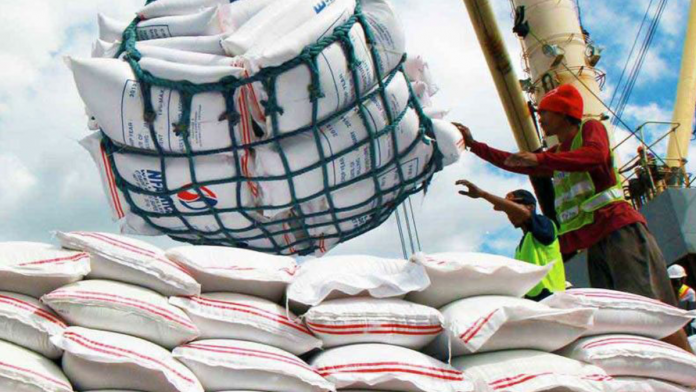News in brief:
-Â Nigeria is projected to become the world’s largest rice importer in 2024, with an estimated volume of 2.1 million metric tons in imports.
– The surge in imports is attributed to factors such as weak domestic rice production, high local rice prices, and quality concerns, as well as the CBN lifting forex restrictions on importing the product.
Nigeria is poised to become the world’s largest rice importer in 2024, with projections indicating a staggering import volume of 2.1 million metric tons (mmt). This is according to the latest Rice Outlook report by the Economic Research Service of the US Department of Agriculture (USDA).
This significant increase in rice imports is attributed to a combination of factors. The United States agency cited weaker domestic rice production, high prices for local rice, and quality concerns regarding local rice.
Also, it mentioned that the Central Bank of Nigeria’s (CBN) decision to lift foreign exchange restrictions on rice imports could contribute to increase in imports.
On a global scale, USDA’s Rice Outlook report projects that rice trade will reach approximately 52.85 million tons (milled basis) by 2024. It said that Brazil and South Korea would be leading exporters of the product while Burkina Faso, Indonesia, and Nigeria would be primary importers.
However, despite the projected rise in global rice trade, the agency anticipates a decline in rice production in Japan, South Korea, Costa Rica, Ecuador, Mali, Nigeria, Turkey, and Uzbekistan. It says that factors like diet diversification, aging populations, and unfavourable weather conditions would be the cause for this fall.
Nigeria’s rice production is expected to drop to 5.23 million tons in 2023/24, down from the previous year’s estimate. However, the country’s import demand is expected to remain strong, driven by population growth, urbanisation, and rising disposable incomes.
Meanwhile, the lifting of foreign exchange restrictions on rice imports is a seen as a positive step towards ensuring food security and stabilising its price in Nigeria. Yet, it will be crucial for the government to implement measures to boost domestic rice production at lower cost and improve its quality and competitiveness to reduce reliance on imports in the long run.



